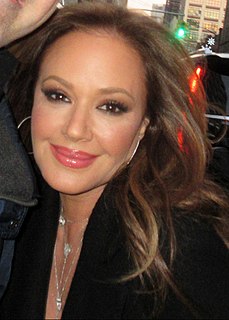A Quote by Alison Krauss
When it's open and honest, that's when the real nature of who you are as a vocalist or as a performer, all of that stuff can finally start to become what it's supposed to be. Like a settling into yourself. It's not even a musical thing, it's a whole mindset, a whole acceptance of who you were supposed to be. Life sounds good.
Related Quotes
When it's open and honest, that's when the real nature of who you are as a vocalist or as a performer, all of that stuff can finally start to become what it's supposed to be. Like a settling into yourself. It's not even a musical thing, it's a whole mindset, a whole acceptance of who you were supposed to be. Life sounds good
At 21, you can live life with reckless abandon, as reckless as your abandon is. Then, at 30, there's something there are the supposed to be's. You're like, "I'm supposed to be doing this. I'm supposed to be doing that." You start measuring your life by what you think you're supposed to be doing. Having recently turned 40, it's like, "What the hell?! Why am I worried about what I'm supposed to be doing? What do I want to do?" You become fine with wherever the road takes you.
Growing up is something that you do your whole life. I want to always feel that I can be a kid if I want. Growing up has some negative connotations. Like, you're not supposed to roll around on the ground anymore. You're not supposed to make fun of yourself. You're not supposed to ride a bicycle. But I'm a Toys-R-Us kid.
We thought of life by analogy with a journey, a pilgrimage, which had a serious purpose at the end, and the thing was to get to that end, success or whatever it is, maybe heaven after you’re dead. But we missed the point the whole way along. It was a musical thing and you were supposed to sing or to dance while the music was being played.
You get stared at the whole time. I first noticed that when I was about 13. I was very shy. Being considered beautiful, I always felt that people were waiting for something more. I imagined you were supposed to have an intellectual ability - and I'm making no claims here - proportional to your supposed good looks.
I think, when you're a young composer, you're told constantly that what you're supposed to do is figure out what your voice is. "What is your thing supposed to sound like?" You know: "What's the thing you do," that everyone can recognizably tell from a long distance is you and then you're supposed to be in search of that marker and you're supposed to find it and you're supposed to live there for the rest of your life. And it seemed to me, from a young age, that was what I was encouraged to do. You find a sound and that's your sound! That's what you do.
The charged life, then, usually calls to us after we have done what we were supposed to do, become who we thought we were supposed to be, lived as we thought we were supposed to live. Then the safety and comfort and compromise get to us, and a stirring of restlessness and revolution sends us off in search of greater adventures and meaning. From THE CHARGE
Success is when the whole gets enlightened. When you become one with the whole, that's the real success. To be one with the whole is the real success. And when that success is achieved, then you really enjoy that growth - that growth of your awareness which makes you one with the whole. That is what you have to know, is to become your whole. You are just a fragment, a segment, a cell. You have to become the whole and that can be done only through this connection.
Let's be honest, you and I have probably seen a whole lot of family films - you have to do something special. Jim Strouse has the ability to write this hairpin turn between emotion and comedy that is very real. In real life, you don't have time to prepare for the bad stuff and you don't have time to prepare for the good stuff, it just sort of happens.
Acting for me is liberating. It's almost like therapy, because I grew up in a blue-collar environment where you're not supposed to have feelings. So it's freeing to be in a safe place like a TV or film set where you discover feelings, and where you're supposed to be open and honest with everybody while exposing the weakest parts of you. And then when people congratulate you on revealing the weakest part of who you are, then you start realizing that that might not be weakness. It might be a different kind of strength.
Family was even a bigger word than I imagined, wide and without limitations, if you allowed it, defying easy definition. You had family that was supposed to be family and wasn't, family that wasn't family but was, halves becoming whole, wholes splitting into two; it was possible to lack whole, honest love and connection from family in lead roles, yet to be filled to abundance by the unexpected supporting players.



































